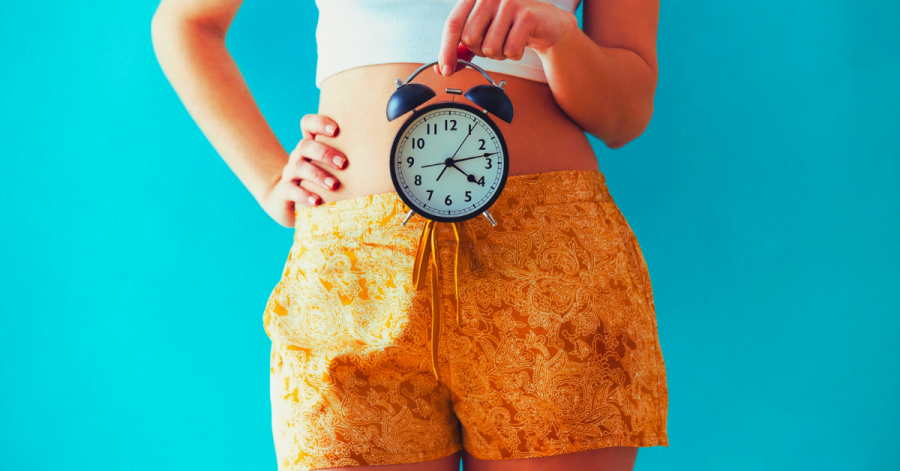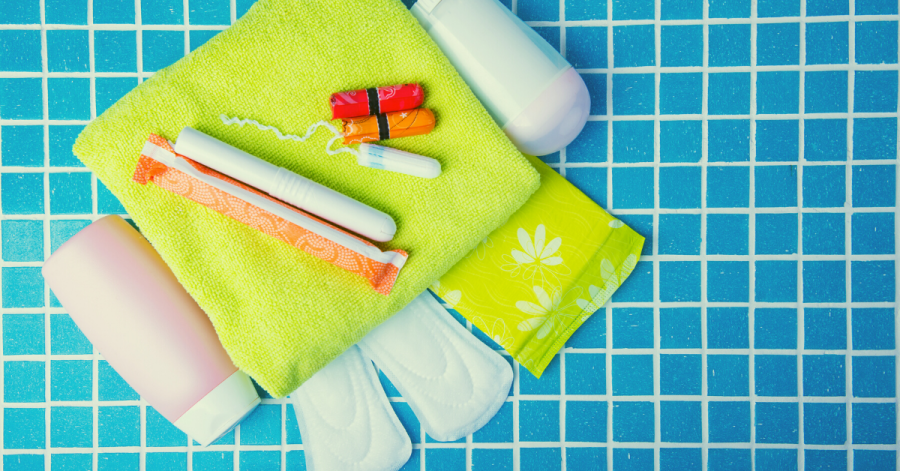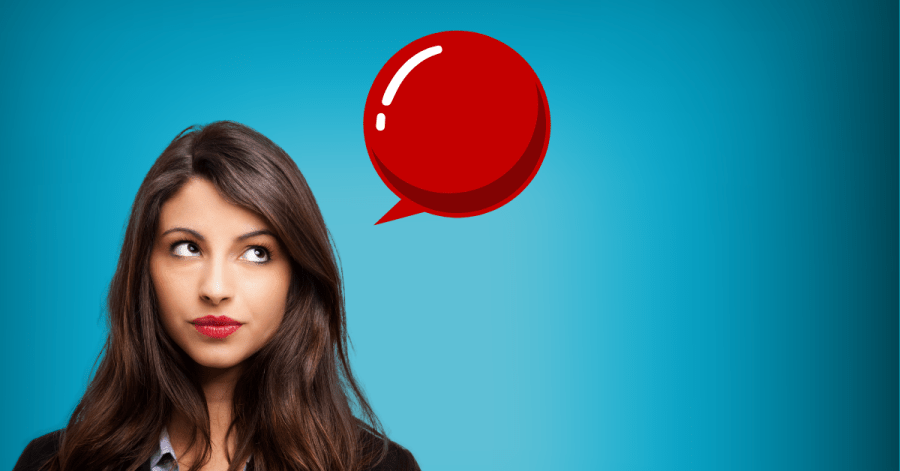Happy Women’s Month! I am marking the occasion with an English lesson devoted entirely to menstruation. It’s not a fun topic, but we do need to talk about it. It comes every month, and usually at the worst possible time.
To the poor men who are still reading this, don’t leave yet! Talking about periods is not only for women. Women have to deal with our periods, and men have to deal with women! So there.
The language of periods is just as important as any other vocabulary set, so let’s normalize teaching and learning how to talk formally and informally about the female menstrual cycle. Here’s your guide to talking about your period in English… with no strings attached! (Groans.)
At The Doctor’s
So who are you going to be talking to about your period?
A gy-ne-COL-o-gist is often referred to as an O.B.G.Y.N (oh-bee-jee-why-en).
Doctors always refer to our monthly days of bleeding as men-stru-A-tion.

Menstruation is a good word to know if you’re speaking with a doctor, but I would personally NEVER use that term. I just don’t like the sound of it. It’s just too… clinical. Most of the time, we refer to menstruation as a period.
In a doctor-patient conversation, we might use both terms accordingly. Examine the following dialogue:
Doctor: Are you menstruating?
Woman: Yes, I get my period every 30 days.
Doctor: When was the first date of your last menstrual period?
Woman: I don’t remember. Maybe 2 weeks ago?
Doctor: Are you having regular periods?
Woman: Yes. But my flow has been heavier than usual.
Doctor: That’s normal.
Here are a few of these phrases in action.
to be on your period: currently bleeding
I don’t wear white pants when I’m on my period.
to get your period: your period just started
I got my first period when I was 15 years old.
my period’s on the way
I’m emotional and achy. I’m sure my period’s on the way.
Before The Flood
When your period’s on the way, we often feel moody and tired. The acronym PMS (pee-em-ess) stands for pre-menstrual syndrome, the few days of discomfort that some women experience before their periods. You may have some or all of the following symptoms:
- I have cramps: pain in the lower abdomen caused by contractions during your period
- I’m moody: changing your emotions due to changes in hormone levels
- My breasts are tender: painful to touch
- I’m bloated: feeling full of gas or liquids, making it uncomfortable to button your pants
- I feel achy: your muscles and joints are hurting, you may have headaches
Isn’t it great being a woman?!

Shark Week: Idioms and Slang About Your Period
Aside from menstruation and your period, there are other, less formal ways to talk about your period. You can always depend on our brothers, boyfriends, and husbands to use these slangy terms. Here are a few favorites:
shark week: I’ll let you figure this one out on your own.
No explanation needed.
to be on the rag: refers to sanitary napkins
My girlfriend is so moody when she’s on the rag.
My Aunt Flo is in town: refers to the flow of blood that comes once a month
I don’t feel like swimming when Aunt Flow is in town.
It’s that time of the month
Look, she’s crying. Must be that time of the month.
on my moon
I just want to be alone when I’m on my moon.
I’m PMS-ing
Sorry I hung up on you earlier. It’s because I’m PMS-ing.
Tools Of The Trade

Of course, your period will show up at the worst of times: on a first date, during swim class, or on your wedding day! (It knows.) Women are always borrowing feminine hygiene products from each other. Here are the most popular products and how to pronounce them:
- a tampon: TAM-pon
- a maxi-pad: a MAX-i pad or SAN-itary NAP-kin
- a panty liner: a PAN-ty LI-ner
- a menstrual cup: does anyone really even use these?! Let me know if it works!
When we are on our periods, we might require extra rest or a nice, hot shower. We might also want a heating pad for our cramps, a box of tissues for when we cry, and a bottle of wine to drown our tears.
Go With The Flow
The amount of blood we lose during our period is referred to as our “flow”. Flow can be heavy, light, or spotting. Feminine products come in various levels of absorbency for this reason.
The Joy of Periods

Remember that our periods are part of what makes us the powerful women we are. Your period week is a great time to practice self-care and quiet reflection. Curl up with a book, shut out the world, and rest. It’s not always possible for busy, working women, but don’t be afraid to ask for some downtime during this week. You definitely deserve it!
I hope you find this lesson useful the next time you need to talk about your period in English. Let me hear your thoughts and questions in the comments below. Happy Women’s Month to all!

